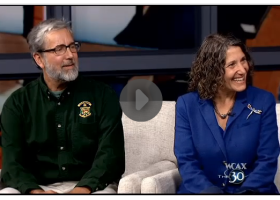
Vt. Adds to Threatened and Endangered Species List
Vermont has added nine species, including three bumble bees, to its list of threatened and endangered species thanks to data from the Vermont Atlas of Life.
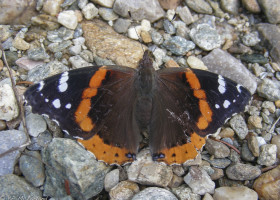
Admirals at Sea
Drifting in a boat several miles out in the Gulf of Maine, Chris Rimmer, director of the Vermont Center for Ecostudies, didn’t expect to see any butterflies.
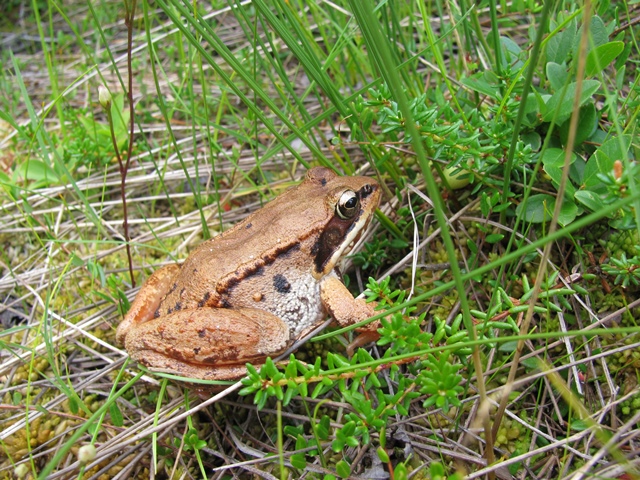
Study backs up theory that warming, pollution combine to hurt Alaska’s wood frogs
Alaska’s hardy wood frogs, like other amphibians around North America, have been plagued by a mysterious disorder that is deforming and killing them off.
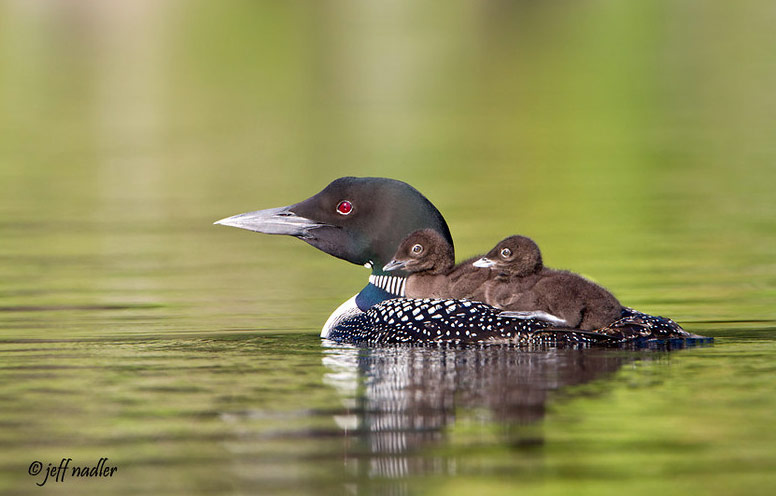
Join VCE’s LoonWatch on July 18
Here’s your chance to visit a lake or pond during one of the most vital days for Common Loon conservation of the year: LoonWatch. On Saturday, July 18, volunteers will take to Vermont waters to count loons.
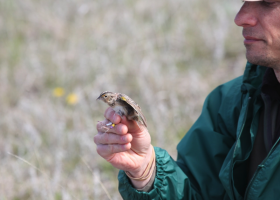
Choppers and Hoppers: A Report from the Grasslands
By mid-June we were fairly used to tanks shooting over us and helicopters buzzing past our heads. Such is a typical day of research with Grasshopper Sparrows on an active military reservation.
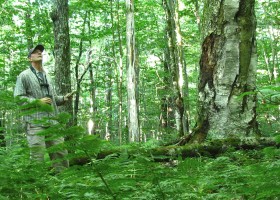
Celebrating Town Forest with eBird Hotspots
In 1915 the state of Vermont passed a law which allowed towns to acquire forest land for public benefit leading to the creation of over 300 town forests across the state. We would also like to recognize these important properties and encourage birders to suggest which town forests should be eBird Hotspots. Learn more…
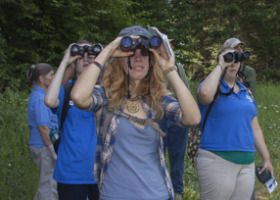
BioBlitz 2015: Find Something Wild
Part scientific endeavor, part festival, and part education, on July 11th the 2015 BioBlitz at Marsh-Billings-Rockefeller National Historical Park will bring together leading scientists, naturalists, and community members of all ages to find and document as many species as possible in one day at the park as part of the Vermont Atlas of Life.
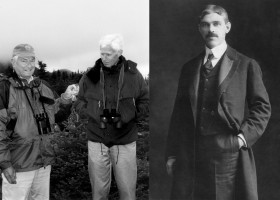
Bicknell Legacy Shines on Mt. Mansfield
This past Tuesday, exactly one day after the 134th anniversary of Eugene Bicknell’s landmark discovery, a fifth generation descendant, Edward “Teddy” Bicknell Doggett, joined VCE staff on Mansfield, with his grandparents Gene and Nina Doggett. It didn’t take long for Teddy’s indoctrination into BITHnology to occur.
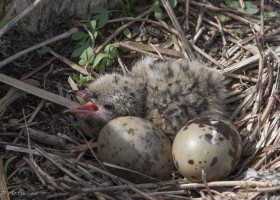
Outdoor Radio: Counting Terns
Hard hats in hand, VCE biologists Kent McFarland and Sara Zahendra head to Lake Champlain. They are taking a boat to Papasquash Island, owned by Audubon Vermont, to help count Common Tern eggs and chicks on the island.
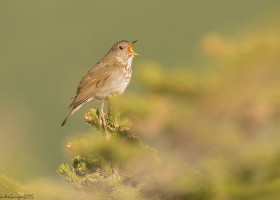
Bicknell’s Sing Up a Storm on Mt. Mansfield
Imagine being on Vermont’s tallest peak at 9:30 pm on a clear, cool evening without a whisper of wind. Sunset’s faint after-glow still peeks from the western horizon, while a moon just past full rises bright orange to the east, over the Worcester range.
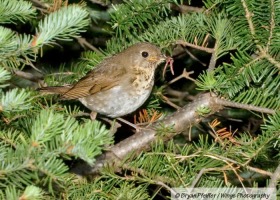
Scientists Combine Bird Survey Data to Identify Vulnerable Songbirds
Mountain Birdwatch data lie at the heart of a published study revealing that continent-wide bird surveys may offer important conservation insights, but they can miss rare or isolated species whose habitat lies off the beaten path, such as at high elevations or in remote bogs.

Judith Scarl Migrates Southward
For the past five and a half years, Judith Scarl has been a mainstay of VCE’s conservation biology staff. Now, she’s moving on, leaving the Green Mountains to try her hand on the bigger bird conservation stage in Washington, DC. It’s an understatement to say that we’ll miss Jude, and that she has left a lasting mark here.
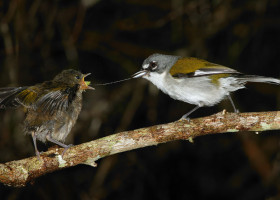
The Long Life of Tropical Mountain Birds
Bird banding data collected for over 15 years by VCE researchers shows that resident tropical birds live a long life. Some of the small songbirds lived nearly 14 years.
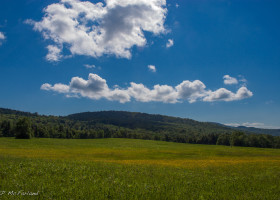
A Field Guide to June
Here in Vermont, we dream of June during the darkest days of January. Verdant wooded hillsides glowing brightly under a robin egg sky. We forget about the clouds of black flies, the hum of the mosquitos and the rainy days. June is a dream here. Its days last forever.
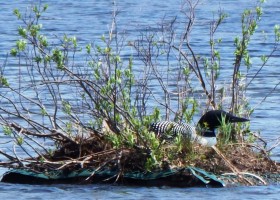
It’s Loon Nesting Time
Eric Hanson, VCE loon biologist, recently visited 9 territories and found 5 nests. “It’s always a thrill to find a loon sitting on shore at the start of its month long incubation period,” exclaimed Hanson. He has been installing signs to help warn people to give the loons a break while they are breeding.
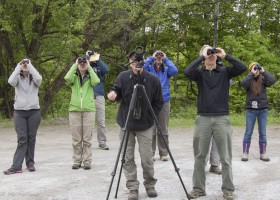
By Land and by Sea, VCE Birdathon a Success
On May 21 the VCE staff watched birds with even greater purpose and determination than usual: Birdathon. The VCE Green Mountain Goatsuckers opted for our customary low-carbon birding, launching an armada on the Connecticut River after pre-breakfast terrestrial birding.
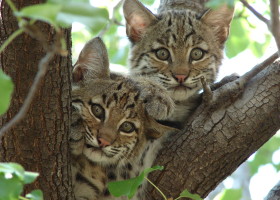
A New Habitat Stamp for Vermonters Interested in Conservation
Fashioned on the success of the federal duck stamp, Vermont is releasing the new Habitat Stamp, a voluntary way to donate to protecting wild places in the state.
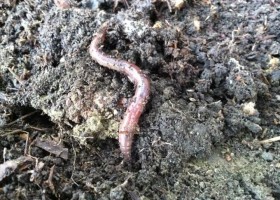
Metal pollutants in Earthworms may Threaten Forest Predators
Invasive earthworms in New England’s forests are absorbing toxic metal pollutants that may be contributing to a decline animals that feed on them.
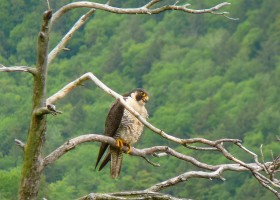
Outdoor Radio: Eye on an Eyrie
VCE Biologists Kent McFarland and Sarah Zahendra recently took a trip to the Bolton Notch and joined Margaret Fowle, from Audubon Vermont in search of this lightning fast bird. Listen to the show.
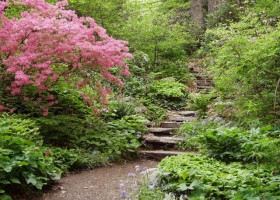
Choose Native Plants When Landscaping
Beyond the beauty new gardens provide, landscapers can make a big difference for wildlife with the plants they choose.
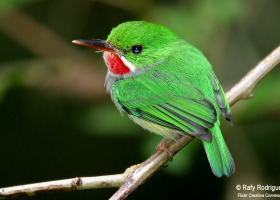
What Are They Worth to You?
On May 21 the VCE staff will watch birds with even greater purpose and determination than usual: Birdathon. In our annual 24-hour birding blitz, we’ll be raising funds to support VCE’s wildlife and habitat conservation projects.
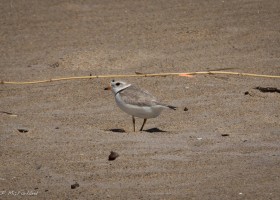
Be Aware of Endangered Piping Plovers Nesting on the Beaches
Be aware of endangered birds on the beaches this holiday weekend and beyond, as the New Hampshire Fish and Game Department reports there are six pairs of piping plovers nesting along the sandy shores of Hampton and Seabrook.

Discover Biodiversity Locally, Tally Globally
From May 15th through May 25th, people all over the world are documenting biodiversity for the Global Bioblitz 2015. Let’s put Vermont biodiversity on the global map. Learn how you can contribute…
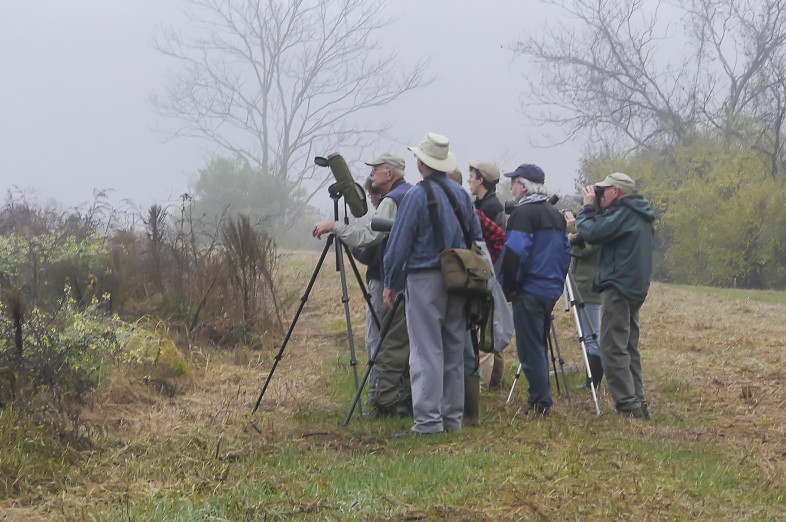
eBird Wins Award
eBird is the recipient of the first ever Leon Levy Award for Innovation in Bird Conservation, awarded by the American Bird Conservancy.
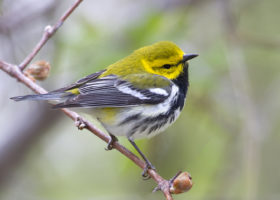
A Field Guide to May 2015
The month of May is a show-off. May shouts of life and rejuvenation. Read all about it in our Field Guide to May.
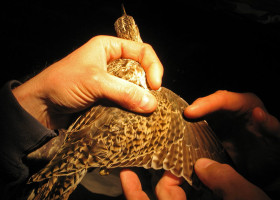
Nightlife With Upland Sandpipers
VCE’s research into the migratory routes, timing, and wintering grounds of grassland birds took us first to the prairies of Kansas, where we fitted Upland Sandpipers with tracking devices called “geolocators.”
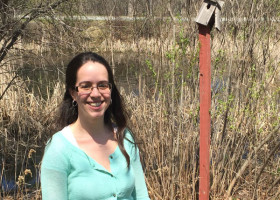
Shelly Melendy: VCE’s New Multi-Tasker
With the launch of a new field season here at VCE, our office staff and far-flung biologists find themselves even more organized now that we’ve hired Shelly Melendy as our new administrative assistant.
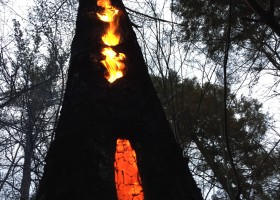
Spring Wildfire
As if on cue, wildfires ignited around Vermont this spring. Several of our biologists are also volunteer firefighters, and while in the woods fighting wildfires, they’ve also got an eye on forest life.
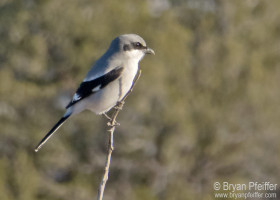
‘No Bird Sighting Left Behind’
VCE today launches an ambitious project to retrieve historic bird sightings, some a century old, now trapped in notebooks, on scraps of paper and in dusty file drawers. It turns out that bird conservation depends in part on what we can reclaim from the past.
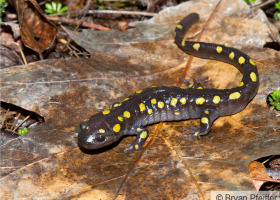
A Vernal Explosion of Life
On an early spring day, biologists Kent McFarland and Sara Zahendra stand in front of a vernal pool in Strafford. It’s noisy. Early spring heralds the return of life to the pools.
